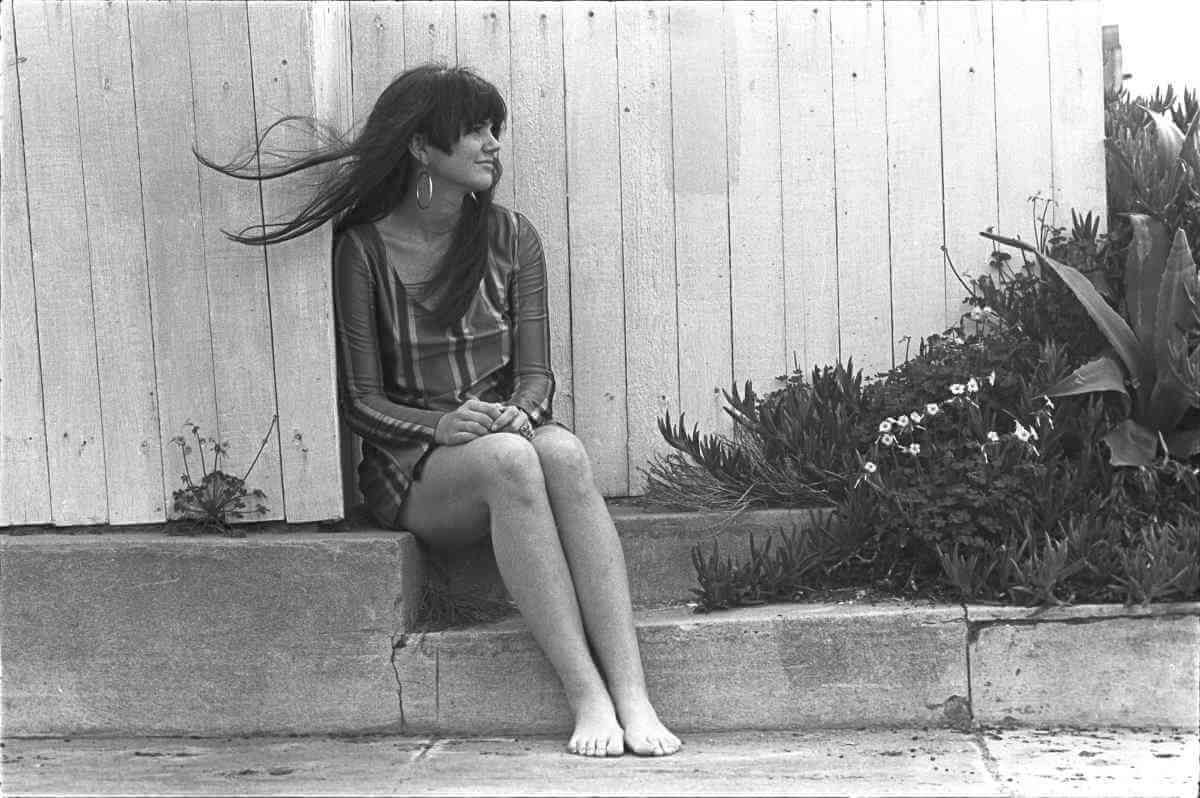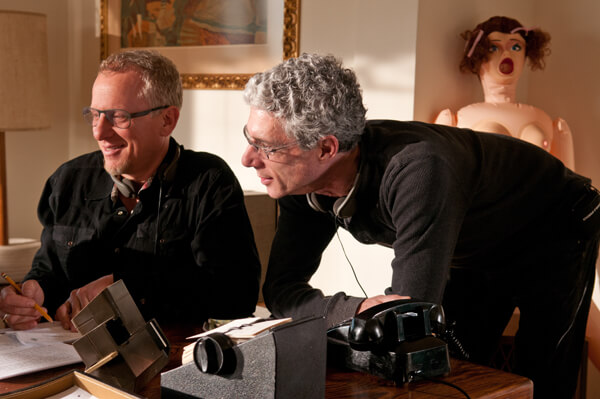Linda Ronstadt was for a time the most successful female vocalist in America. In their fabulous documentary “Linda Ronstadt: The Sound of My Voice,” out gay filmmakers Rob Epstein and Jeffrey Friedman trace the singer’s life and career from her childhood in Tucson, Arizona, to playing stadiums around the world. The film, based on Ronstadt’s memoir, “Simple Dreams,” features plenty of concert footage, interviews, and anecdotes as it explores different phases of her career, from rock, country, and pop to operetta, standards, and Mexican songs. (Spoiler: she succeeded wildly in all genres).
In separate phone interviews, Epstein and Friedman, whose collaborations have included the Oscar-winning “The Times of Harvey Milk” and “The Celluloid Closet,” spoke about the singer and their new film.
GARY M. KRAMER: What song do you associate most with Linda Ronstadt and why?
ROB EPSTEIN: For me, it’s her first hit, “Different Drum.” That song was written by Mike Nesmith for a man to sing about not being tied down to any one woman and Linda turned that on its head and made it a story of empowerment in 1967-1968. That captures so much of who she is and was throughout her career. She never compromised herself. It was also the first record I ever bought.
JEFFREY FRIEDMAN: I think of her early songs, “Different Drum,” that whole period. She was always part of the soundtrack of whatever was going on as I was coming of age. I really started paying attention to her as an artist when she started branching out into new forms and styles and trying things she’d never done before. That intrigued me because it was so unusual, and she was so fabulous at it. I loved her “Pirates” period [which included stage and film performances in Gilbert and Sullivan’s “The Pirates of Penzance”] and “Canciones” [Ronstadt’s album of Mexican traditional Mariachi music].
KRAMER: Ronstadt projects a vulnerability but also a raw power in her performances. Is there a particular song or moment that you think captures this best, and why?
FRIEDMAN: The song “Long, Long Time,” which she sings on “The Dick Cavett Show.” There is something about that performance where she’s on her own, on a stage with a microphone, singing her heart out, and her voice is so beautiful, and her control of her instrument is so impressive, and there’s such passion in the performance. But seeing her stand up there in her jeans, raw, putting herself out there, it captures her vulnerability and confidence. She projects such tremendous confidence in her artistic control, even though she expresses doubts about herself offstage.
EPSTEIN: I’ve seen the film hundreds and hundreds of times, and I take such joy in watching it because of her stellar performances. But the moment in the studio where she is recording Karla Bonoff’s “Lose Again,” live with musicians, it’s just a tour de force.
KRAMER: How did you conceive of this doc and how did you get her to trust you to make it?
EPSTEIN: It was hearing her on “Fresh Air” when her autobiography came out. I was taken by her smarts and humility and her telling her story. I thought it would make a great film and be told in her voice. We wanted her voice to work both as a literary and a musical voice. My computer repair guy saw her book on my desk and said she was a client. We took her out to lunch and pitched her the idea of adapting the book, and she said no; she didn’t think there would be any audience or funding — her typical self-effacing quality. Her assistant encouraged us and eventually she agreed. She liked “The Times of Harvey Milk,” so had that trust in us.
KRAMER: Can you talk about how you constructed the narrative and used photographs, performance clips, and interviews to tell her story?
EPSTEIN: The idea was about her musical journey because that was most interesting to us. It was so rich because she covers so much ground. That was the narrative and emotional thrust of the film — it was a process of discovering for her. That’s the journey we want to take the audience on — from rock to country to musical theater and Mexican music.
KRA MER: What observations do you have about her career and her music?
FRIEDMAN: I think she’s an artist who was never satisfied doing the same things even though it could have been very lucrative for her to do that. She had an artistic restlessness to try new things. It was about the music, not her career. I take her at her word that she was as happy — probably more happy — singing at home with a group of friends instead of in front of huge crowds.
KRAMER: Ronstadt was a female singer in the male-dominated music industry. What are your thoughts about how she was able to maintain control of her life and career?
FRIEDMAN: There were all kinds of sex, drugs, and rock and roll stories swirling around, but Linda didn’t go there. She was just in it for the music. She was very grounded and centered and knew who she was. She never lost her way.
KRAMER: The film is wistful because of her Parkinson’s, but mostly it’s very affectionate. What do you want fans old and new to learn about Linda from your film?
FRIEDMAN: I hope people will be inspired by her focus on her art as opposed to her celebrity, which didn’t interest her at all. Our culture is so obsessed with celebrity and people “liking” you. It feels empty without some real content and artistic adventure behind it. I hope people will see the artist looking for new ways to inspire herself and putting herself out there to share her art in a way that has nothing to do with what we think of pop stardom and celebrity.
EPSTEIN: So many younger people don’t know anything about her, so to intro her to a younger audience who can grow to appreciate her and that she was one of the biggest stars of the last 50 years. So much of her story remains largely unknown — they know the hits but not the totality of her career. That will be the biggest takeaway for the audience. And her adventurous spirit. To me that’s so inspiring—that someone got through this rich, full, professional life and then losing that sense of adventure.
LINDA RONSTADT: THE SOUND OF MY VOICE | Directed by Rob Epstein and Jeffrey Friedman | Greenwich Entertainment / 1091 Media / CNN Films | Opens Sept. 6 | Film Forum, 209 W. Houston St.; filmforum.org | Landmark at 57 West, 657 W. 57th St.; landmarktheatres.com

































